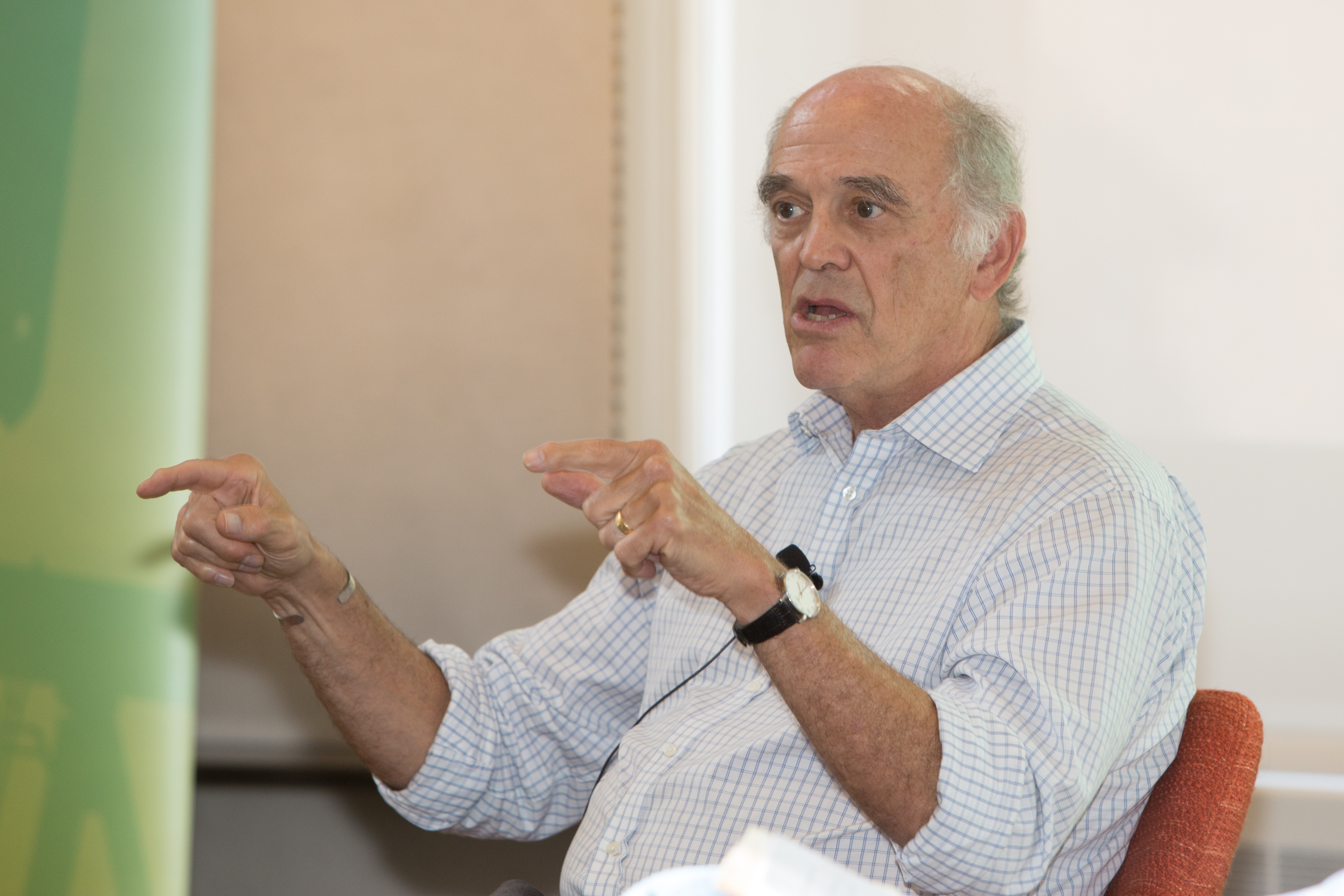How did you start in the environmental world?
From 1972 to 1977, I was coordinating a coalition of environmental groups focused on amendments to the Clean Air Act. Then, after Jimmy Carter was elected president, I was reading a report from the EPA, which had a brief reference to the fact that coal could tear up the planet. I was astounded and shocked.
I called up Gordon MacDonald, who was not only a top physicist, but also understood the policy and political world, too. He agreed to see me, and at the end of our meeting I said, ‘If I set up the briefings, will you do them?’ That started a multiyear process of briefing policymakers in the Carter Administration, people on the Hill, the media, and in that decade, the issue [of climate change] came out of hiding. It became the public policy issue I thought it ought to be. We stayed at it until we created events that made it go big time.
Were there any turning points that stand out?
Two events were critical. One was June 10-11, 1986, a hearing chaired by a Republican [senator] from Rhode Island, John Chaffee. The first panel brought together the ozone layer issue, the ozone hole, and the climate change forecast for U.S. cities. The witness on the ozone hole was Bob Watson of NASA, who showed a movie of the ozone hole. Another witness was Jim Hansen, probably the most famous climate scientist, who testified to what U.S. cities would look like, how much warming there would be over this century. The following day was important government witnesses. That panel triggered two days of front-page news.
Then in July of 1986, Tim Wirth, a [Democratic] senator from Colorado, chaired a hearing where Jim Hansen was again a key witness. That was a hot summer, forest fires, drought, heat in the west. In Hansen’s testimony, he said—and this was the blockbuster—that global temperatures were now outside of natural variability. That hearing went global, too. In the wake, the Intergovernmental Panel on Climate Change [IPCC] was established, with the first meeting held after the 1988 presidential election.
That was already 30 years ago. Have we made any progress?
In some ways, yes. Back then, nobody knew anything about global warming; nobody understood the problem or knew any details. Now the entire world knows about the issue and awareness is increasing. There’s also been a lot of progress on substitute technologies: Coal, wind, and solar are much cheaper than they were. Third, we now have an IPCC scientific assessment process. We have a global forum every year called the United Nations Framework Convention on Climate Change. There’s a negotiating framework. And in the United States, there’s a lot of activity at the state level.
At the global level, what do you see as the most important action for the world to take?
We need to reform the global economic system to price carbon. Every molecule of CO2 has a global impact. It lives long in the atmosphere and the whole time is trapping radiation and reflecting it back to the Earth. All carbon dioxide is equal, so to speak. What we have here is a problem that triggers a rethink of the world’s global system, economic and energy systems.
In an ideal world, every government would raise taxes together, but that’s a big ask. Basically the world has ended up negotiating, in the Paris Agreement, national targets—voluntary targets—but that’s a very slow process and now everybody is aware of A) how far we are committed to warming, B) how serious it is, and C) how hard it will be to get the concentrations down to safe levels, so there is a lot of urgency.
It sounds pretty overwhelming.
We human beings, homo sapiens, are in charge of the planet, the so-called Anthropocene. It’s now obvious that 7 billion of us are using so much energy and producing so much CO2 that we’re raising the concentration at an unprecedented level in geologic history. We can now see the rapidity of change.
So, it is overwhelming. You should feel overwhelmed. That’s just the way it is. It’s an overwhelming problem. It’s the largest conscious, organized governmental effort to shift the world economy fast enough to avoid the worst of this. We’re in a new world, one in which we didn’t know we were entering when we launched it.
Let’s end on a positive note. What can people do at the individual level?
Every individual can innovate ways to cut their own energy use and their own contribution to the buildup of methane, which is a greenhouse gas. On the individual level, it’s a cultural revolution that changes the way we, all of us, think about this, and it’s very difficult because we’re used to the lifestyle.
Here you go, here’s a paper cup. [Holds up a cup.] There’s a certain amount of energy that goes into making it. The fact is, we should use it until it falls apart. That’s at the most micro level, but it’s also the cars you buy, the size of homes you live in. There’s a very large consciousness that has to change around what consumption means, and the question is, can we get there in time? [To that end], the single most important policy decision in the climate world will be made by the American people in 2020 presidential election.







